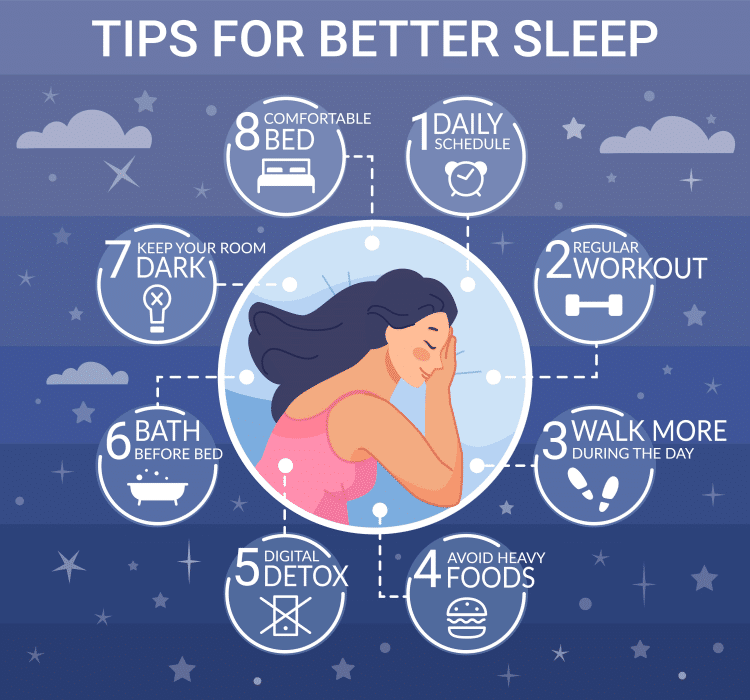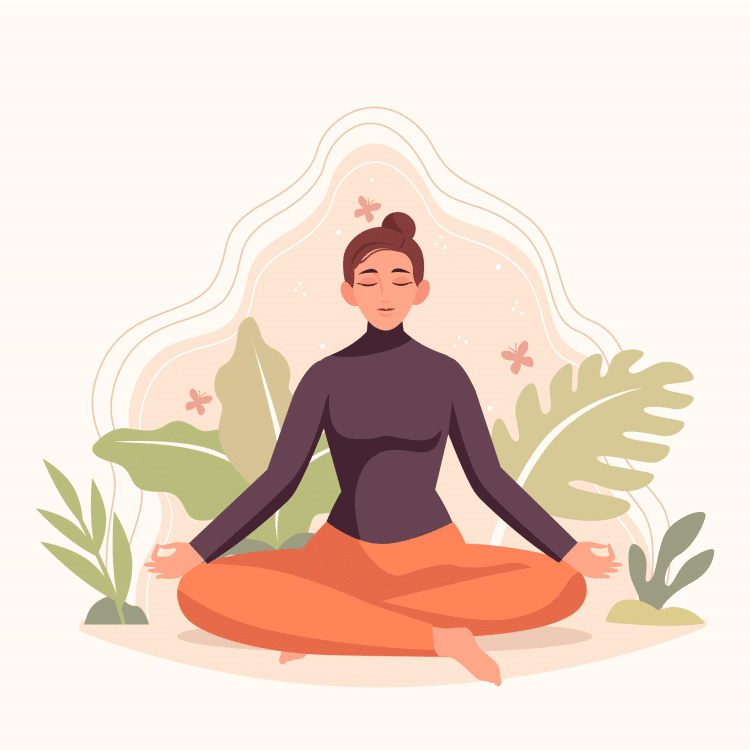Life is stressful. But the truth is taking a walk each day makes you more productive. This is one of the best things you can do to boost your productivity.
As if it wasn’t difficult enough just to get by and make a living, technology and the internet are changing things so quickly that it’s often difficult to keep up.
And with so much pressure on us to find the best productivity and time management hacks, it can seem counterintuitive to think about taking some time away from the computer screen. But the truth is that taking a walk each day can actually be one of the best things you can do to boost your productivity.
Here’s why.
How Taking a Walk Each Day Makes You More Productive

1. Increased Energy Levels
Walking or running on a regular basis can help you to boost your energy levels, acting as a self-fulfilling prophecy. There will always be times when you’ll struggle to summon up the energy to go on your daily walk, but it’ll get easier over time and you’ll soon start to look forward to it and to have energy to burn.
When you see someone going for an early morning run and you ask yourself where they find their energy, that’s your answer. They have enough energy to go for a run because they go for regular runs. They’ve made it a part of their daily routine, and now they’re reaping the rewards.
2. Better Sleep

Another one of the problems that seems to have been made worse by our modern, constantly-connected society is that it can often be difficult to switch off at night and to get that all-important beauty sleep.
But far more important than getting rid of those bags beneath your eyes is the fact that a good night’s sleep will get you off to the best possible start each day. You’ll have more energy and be in a better mood, and you’ll also find yourself wasting less time each evening just lying in bed and waiting to fall asleep.
Fortunately, taking regular walks can help you to get a better night’s sleep, with regular physical activity improving sleep quality and increasing sleep duration. And there are other benefits, too. For example, taking your walk early in the morning, just after eating your breakfast, can help you to wake up properly before you start work, as well as kick-start your metabolism.
3. Boosted Creativity
Researchers at Stanford University have discovered that taking regular walks can boost a person’s overall creativity both while they’re walking and after they finish. Better still, this creativity boost can help out across all areas of your life, whether you work in a creative job role or not.
If, for example, you’re a full-time parent, you could go for a walk each day and use that extra creativity to come up with some new ways to keep the kids entertained or even to teach them a new skill.
In fact, it can even be a good idea to take the kids on a walk with you, as it can help them to stay in shape and to establish healthy habits early on. Don’t worry if you’re single and/or you don’t have children, though. You can get the same benefits from walking by yourself, with a loved one, or with a pet dog. The important thing to do is to get out of the house.
4. Better Life Satisfaction
According to one study in the Journal of Occupational and Environmental Medicine, employees who spend at least 2.5 hours a week of their work time engaging in a health-related activity (such as taking a daily walk) were more satisfied with their work than those who didn’t.
This study predominantly focuses on how taking regular walks can improve our happiness in the workplace, but we can reasonably assume that the same thing holds true when we’re taking regular walks to improve our personal lives.
5. It Gives You Valuable Thinking Time
One of the biggest advantages of taking a walk each day is that it provides you with some much-needed alone time to mull over and develop ideas or even just recharge your batteries by thinking about nothing at all.
In a world in which we’re expected to always be on and to be ready to respond to new developments at a moment’s notice, taking a little time out can help us to perform the human equivalent of a reset or disk defragmentation.
If you’ve ever been stuck on a problem that has resolved itself after you stepped away and had a good night’s sleep, you can start to see how getting away from a problem and going for a walk could be a great way to overcome speedbumps in your working day.
6. You Can Learn a New Skill

I live in the middle of a town and while there are a few green spaces, by the time that I get to them, it’s already time to turn back. I’ve found myself a few regular routes that I like to walk along, but they’re mostly built up and there isn’t a huge amount of natural beauty to enjoy.
That’s why I keep myself busy learning new skills while I’m walking. As a busy entrepreneur, I sometimes listen to online entrepreneurship courses while walking and I find that doing this helps me remember the information much easier.
I also tend to listen to music while I’m walking and boot up Duolingo, where I’m learning French and German. I’ve also had some success in the past using flashcard apps (I’ve found Brainscape to be the best), and my walks were even super useful when I was learning to drive and I needed to study for my theory test.
7. Alternatively, Listen to an Audio Book
Another great way to fit in a little extra learning is to listen to audiobooks while you’re on your travels. If you’re feeling particularly brave, you can listen at 1.5x or even 2x speed to squeeze in a couple of extra books without increasing your listening time.
You’d be hard-pressed to find a thought leader or productivity hacks expert who doesn’t believe in reading as an important form of self-improvement.
Most of us acknowledge that we ought to read more than we do, but finding the time to do so can be a challenge. That’s why over a quarter of American adults say that they haven’t read even part of a book within the last year.
Reading books can increase empathy, enhance recovery and help people to overcome mental health difficulties, but so much more than that – it can also teach us things.
This can lead to all sorts of productivity boosts, whether you’re learning to become a better worker or whether a book that you read gives you some tips on better focusing on your priorities.
Oh, and if audiobooks aren’t your thing, why not give podcasts a try? Ultimately, the medium that you listen to doesn’t really matter, as long as the information is good and you’re still learning.
8. Meditation

Meditation has gone from strength to strength in recent years, and it’s now so popular that estimates suggest that as many as 14% of Americans practice meditation, showing a sharp increase from the 4.1% it was back in 2012.
And meditation really does work, which is perhaps why it’s taken off so much in the first place. It’s championed by everyone from pop starlets and Silicon Valley entrepreneurs to mums, gurus, and more.
Different people meditate in different ways, so it’s important for you to find something that works for you. With that said, I’ve always found that there’s something about the rhythm of walking that makes it easy to do it almost automatically while focusing on my mind and my meditation.
If you’re struggling, give guided meditation a go. Start out with any of the many free guided meditations that are out there on YouTube, and if you find that it works well for you, consider investing some cash into some specialist meditation apps.
9. Goals and Endurance
As crazy as it sounds, setting yourself the goal of going for a walk every day and then making sure that you actually stick to it can be a great way to prove to yourself that you’re able to set and achieve other goals in your life. Other goals can be daunting, but simply going for a quick walk is something that’s easy to do and that you have total control over.
These short-term goals all add up until eventually, they instill a sense of confidence within you. On Duolingo, for example, I’ve maintained a 200-day streak, and that’s given me greater belief in my ability to stick to long-term goals, both at work and at home.
Forcing yourself to go out for a quick walk even when the weather’s bad and you’re not in the mood for it can also help you to develop your self-discipline.
It’s a similar concept to the way that former soldiers usually make their bed as soon as they wake up in the morning on the basis that it stands them in good stead for the rest of the day.
10. Book Phone Calls
Phone calls can be a pain in the backside, cutting into your productivity time by forcing you to take some time away from whatever it was that you were doing for long enough to disrupt your rhythm.
Most of us have had times when we’ve had a job to do that ended up taking three times longer because we kept on getting distracted by emails, co-workers, and other distractions.
One way to minimize those disruptions is to take a walk at the same time every day and use it to schedule some of your phone calls. That way, you can kill two birds with one stone and get two things ticked off your to-do list with a single walk.
And it’s not just phone calls, either. Booking meetings as part of your daily walk can encourage both you and your colleagues to spend some more time in the great outdoors and get a little exercise.
Better still, you can all tap into the advantages of walking (such as that heightened creativity we talked about) and use it to tackle business problems that might otherwise have stumped you if you were meeting in a plain, grey room.
11. Lengthen Your Life
There’s an overwhelming amount of evidence that spending too much time sitting down can cause early mortality, with one study finding that sitting down for more than six hours per day can raise the risk of early death by 19%.
It’s self-evident that going for regular walks can be good for your health, but a growing amount of evidence is springing up to show just how good it can be.
It’s particularly important today because of just how much time we’re spending sitting down as a society, and while switching to a standing desk is probably the best thing that you can do, going for a daily walk ranks a close second.
According to one study, walking could actually be better than running. Researchers found that running reduced the risk of heart disease by 4.5% while walking reduced it by 9.3%.
The same thing applied to risk factors, with cholesterol risk dropping more due to regular walks than from regular running.
The bottom line is that it doesn’t really matter whether you walk or run, as long as you do something. But if you’re like me and you like walking but the thought of downloading Couch to 5K fills you with dread, the good news is that walking seems to be better for longevity anyway.
Now you can feel nice and smug when you bump into those early morning joggers.
Conclusion
Hopefully, the arguments that we’ve made today have helped to convince you to add a regular walk to your list of productivity hacks. The next step is for you to make it a deliberate and consistent part of your daily routine.
It can take a little while for you to start to see results from your daily walks, so I’d recommend setting your routine and sticking to it for at least a couple of weeks to get a feel for whether it’s having a positive impact or not.
If you do take up walking as part of your daily productivity routine, I’d love to hear about how you get on, so be sure to let me know in the comments. Alternatively, why not share a little about your favorite route? I look forward to keeping the discussion going!


